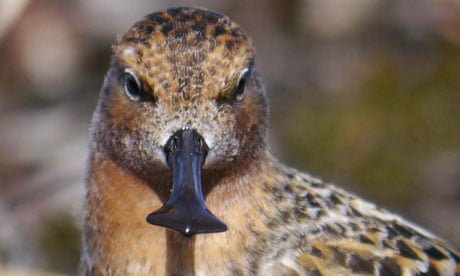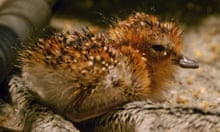A group of spoon-billed sandpipers has arrived in the UK as part of a captive breeding programme to bring the bird back from the brink of extinction.
The 13 young birds have arrived at the Wildfowl and Wetlands Trust's (WWT) centre at Slimbridge, Gloucestershire, in the final leg of an epic journey which has brought them from the species' Russian breeding grounds.
The birds were collected as eggs in Russia as conservationists from WWT, Birds Russia and the RSPB mounted an emergency rescue mission, before being hatched in captivity and kept in quarantine for a month in Moscow zoo.
They have now been flown to the UK and taken to Slimbridge, where they will spend another 30 days in quarantine, to form the basis of a captive breeding programme.
The critically endangered spoon-billed sandpiper, one of the world's rarest birds, had seen its population fall to an estimated 120-200 pairs in the wild by 2009.
Numbers are thought to be declining by around a quarter each year owing to very low survival rates of juvenile spoon-billed sandpipers and conservationists warn the bird could go extinct within a decade without swift action to help it.
The migratory wading birds are being hit by hunting in their wintering grounds in Burma, and by damage to habitats on their migration "flyway" along the coasts of Korea, China and Japan.
The hope is the emergency mission will establish a captive population that can provide birds for future reintroduction to the wild and act as a safety net in case the species dies out.
WWT's head of conservation breeding, Nigel Jarrett, said: "Taking one of the world's rarest birds across 11 times zones by boat, plane, and now by road has been the most nerve-wracking job I've ever done.
"The hopes of the conservation movement worldwide have been riding on this mission and it is an incredibly difficult thing to do successfully."


